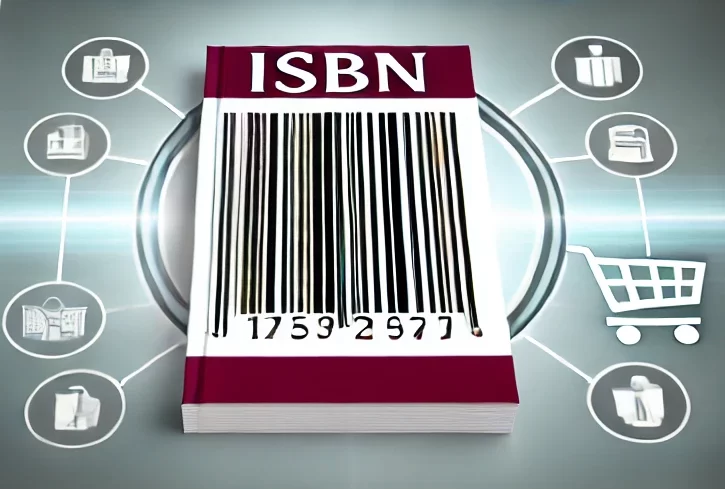
In today’s digital age, where countless books are published and distributed daily, standing out in the crowded marketplace is a significant challenge for authors and publishers alike. Amidst this noise, the ISBN (International Standard Book Number) is vital in the publishing process. An ISBN number is more than a mere string of digits; it is a unique identifier that plays a pivotal role in a book’s journey from creation to distribution.
For authors, especially those navigating the complex landscape of self-publishing, understanding the importance of an ISBN number is essential. It serves as a bridge between the book and the marketplace, facilitating discoverability and sales tracking. In this article, we will explore why obtaining an ISBN is critical for anyone looking to sell their book, examining its various benefits and how it can significantly impact a book’s success.

An ISBN is a unique identifier for a book, ensuring it stands out from many worldwide titles. This identification is not limited to physical books but extends to various formats, including e-books and audiobooks.
The ISBN system is standardized globally, making it possible for booksellers, libraries, and distributors to precisely locate and distinguish one book from another. This is particularly crucial in an era where the same title can be available in different formats and editions. The uniqueness of an ISBN prevents confusion and errors in listing and ordering, ensuring that the correct version of a book reaches the right audience.

With an ISBN, a book can be listed in multiple databases, including major online retailers like Amazon, Barnes & Noble, and international book cataloging systems. This listing significantly increases the book’s visibility, making it easier for potential readers to discover it through search engines and book databases.
Furthermore, an ISBN enables a book to be included in metadata feeds that booksellers and libraries use to catalog their inventory, improving searchability. This is essential for reaching a broader audience and tapping into various sales channels, both online and offline. The enhanced discoverability afforded by an ISBN can lead to increased sales and a wider readership.
Having an ISBN lends a professional appearance to a book, signaling to retailers, libraries, and readers that it is a serious publication. This professional veneer is especially important for self-published authors competing with traditionally published books. An ISBN can enhance a book’s credibility and make it more appealing to potential buyers, reviewers, and industry professionals.
It also reassures readers that they are purchasing a legitimate product, which can be particularly important in an era when counterfeit and pirated copies are a concern. A book’s professional and credible presentation can significantly impact its reception and success in the marketplace.

An ISBN is essential for distributing a book internationally. Without it, many international booksellers and distributors may refuse to list the book, severely limiting its reach. An ISBN ensures the book can be ordered and shipped across borders, making it accessible to a global audience.
This is particularly valuable for authors looking to expand their readership beyond their home country. It also facilitates participation in international book fairs and events, where books are often cataloged and sold based on their ISBNs. The ability to distribute globally opens up new markets and opportunities for sales, increasing the book’s potential impact and profitability.
For retailers, the ISBN simplifies inventory management by providing a straightforward system for cataloging and tracking books. Each ISBN corresponds to a specific book, format, and edition, making it easy to manage stock levels, place orders, and track sales. This efficiency is crucial for both large bookstores and small independent sellers.
It ensures that books are accurately shelved and the correct versions are available to customers. The streamlined process helps prevent overstocking or understocking and reduces the likelihood of transaction errors. Efficient inventory management ultimately leads to better customer service and satisfaction, boosting sales and building a loyal customer base.
Each book format and edition requires a distinct ISBN, whether it’s a hardcover, paperback, e-book, or audiobook. This distinction is essential for cataloging and sales tracking. It also helps manage rights and royalties, ensuring that each version’s revenue is accurately accounted for.
For example, a hardcover edition and an e-book version of the same title will have separate ISBNs, allowing retailers and distributors to differentiate between them. This separation is crucial for sales data analysis, enabling authors and publishers to understand the most popular formats and adjust their marketing strategies accordingly. It also prevents confusion among customers looking for a specific format.
An ISBN is a valuable tool for tracking sales and gathering data on a book’s performance. It allows authors and publishers to monitor where and how their books are sold, identify critical markets, and understand sales trends. This data can be used to refine marketing strategies, target specific demographics, and optimize distribution channels.
For example, an analysis of ISBN-linked sales data might reveal that a book is particularly popular in a certain region or during a specific time of year, providing valuable insights for future marketing efforts. Additionally, tracking sales through ISBNs helps accurately calculate royalties and ensures that authors are fairly compensated for their work.
In conclusion, an ISBN number is not just a formality or an optional feature for a book; it is an essential tool that can significantly influence a book’s success in the market. By providing a unique identifier, an ISBN number ensures that readers, retailers, and libraries can accurately catalog and easily find a book.
This is particularly crucial in an era when books are available in various formats and editions, each requiring precise identification. Beyond mere discoverability, an ISBN lends a professional veneer to a publication, signaling to the world that the book is a serious and legitimate offering. It also opens doors to global distribution, allowing a book to reach audiences far beyond the author’s immediate reach.
Furthermore, the tracking and analytical capabilities afforded by an ISBN allow authors and publishers to make informed decisions, optimize marketing strategies, and better understand their audience. Ultimately, investing in an ISBN is an investment in a book’s future, ensuring it has the best possible chance of success in a competitive and ever-evolving marketplace.
For authors and publishers aiming to make a mark, the importance of an ISBN number cannot be overstated. It is a fundamental component of the publishing process that safeguards the integrity of the work and maximizes its potential for commercial success.
